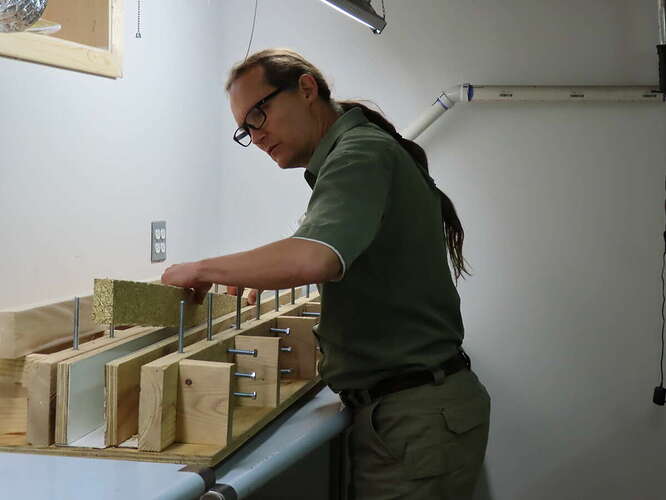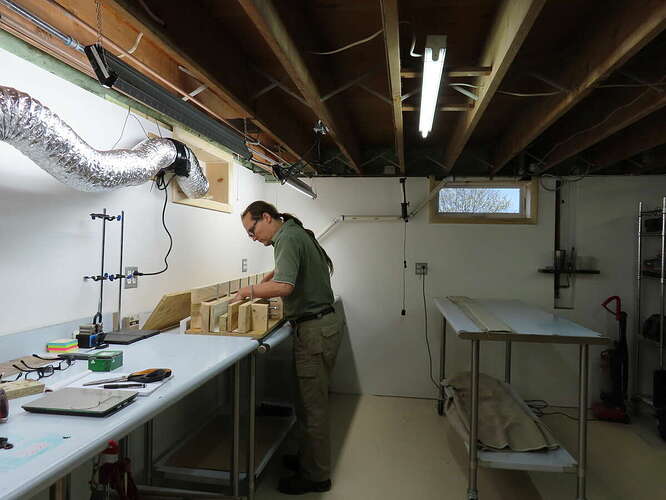Startup hopes its tree-free hemp lumber helps save forests
Structural Biocomposites was awarded a $50,000 grant to further develop the sustainable building material
April 25, 2023
T.J. Fiala believes his Rotterdam-based company’s tree-free lumber alternative made from hemp could revolutionize the construction industry and help curtail global deforestation.
Provided by T.J. Fiala.
ROTTERDAM — While billions of trees are cut down annually to clear space for agriculture and obtain wood for manufacturing and construction, a Rotterdam-based startup believes the future of industrial lumber doesn’t require razing forested land.
In fact, it doesn’t require trees at all.
Founded by engineer T.J. Fiala, Structural Biocomposites is on a mission to reduce deforestation by producing tree-free industrial lumber made from hemp, a plant in the cannabis family known for its fast-growing properties.
“An acre of hemp has four times as much biomass as an acre of trees. It’s one of the strongest fibers in the plant kingdom,” said Fiala.
His company was chosen as one of 10 recipients statewide to receive a $50,000 grant through the Jeff Lawrence Innovation Fund created by FuzeHub, an Albany nonprofit that gets state funding and helps manufacturers in New York bring their products to market.
To fabricate the new building material, Structural BioComposites uses a manufacturing process to encase a hemp core with layers of industrial hemp canvas, creating a material denser than wood that can still be manipulated with standard tools and scaled in both strength and dimension. The sustainable alternative to forested lumber will sequester carbon from the atmosphere and help to remediate soil, according to the founder.
From his prototype two-by-fours to plywood sheets and more, he explained that the material is characterized by its dimensionally consistent, arrow-straight appearance that is devoid of the natural defects associated with forest service products, such as bowing, twisting, crowning, knots and splintering. It’s also fire-resistant, rot-resistant and not prone to be compromised by wood-destroying insects.
The result: less waste, easier installation and shorter production cycle times. In Fiala’s words, it is an “obvious solution.”
“For contractors, it’s all uniform and it’s straight and you don’t have to go to the lumber yard and check down the length of each one of them making sure there aren’t any issues,” he explained. “When you put the prototype into someone’s hand, it’s so fun to watch the change that comes over them and the response of, ‘Oh right, it’s brilliant.’ I just don’t know why it hasn’t been thought of before.”
Fiala applied for the grant in conjunction with Potsdam-based CITEC Business Solutions, a nonprofit business consulting organization. For him, it’s validation that his work over the past five years, from coming up with the idea in his basement to applying for a patent, has paid off.
He will use the funding to determine the material characteristics of the hemp-based lumber and conduct additional testing to see how it will perform in both residential and commercial building structures. Once he establishes its proven value, Fiala hopes to franchise his suite of goods and techniques to establish textile mills and industrial hemp lumber manufacturing hubs throughout the country.
“We are happy to see a focus on sustainability, as well as the desire to solve some very pressing problems. From agriculture to medical issues to industry 4.0, this is such a well-rounded list of projects” said Elena Garuc, executive director at FuzeHub, in a statement. “Since the pandemic, we have seen an increase in partnerships amongst organizations in different regions, and this opens a new set of opportunities for collaboration. That is exactly what these grants were made for.”

